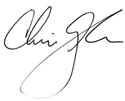This is not a new question in ophthalmology. It has been bubbling up for a year or more in mainstream conversation. In fact, nearly six years ago, Greek surgeon Ioannis Pallikaris said, "Since every optical system is unique, the only way to produce the best retinal image would be a customized shaping of the cornea or a customized phakic IOL."
Though the concept has been around, the definition has taken some time to evolve. Just two years ago, very respected surgeons were touting LASIK saying studies showed it "did not decrease the quality of vision." Most patients would probably agree. The minority, with glare and night vision complaints, had a different understanding of the term "quality of vision."
The profession today is beginning to look on visual qualify from a very different perspective, one that sees best-corrected visual acuity as just one of the many components of quality. One that sees visual quality as a measure of the patient's total visual experience⎯optical and physiological⎯throughout the course of his day and night.
Fortunately, the tools to take the necessary measurements and the tools to provide the custom correction that Dr. Pallikaris foresaw and that patients have come to demand are relatively close at hand.
Los Angeles refractive surgeon Robert Maloney describes one such effort in the IOL arena for us on page 44. The Refractive Surgery department (p. 64) is concluding a three-month look at what the laser manufacturers hope to bring to market in the area of customized ablation.
This focus on an expanded and more realistic understanding of visual quality can only enhance ophthalmologists' competitiveness in the vision correction marketplace. Though our lead news story (p. 5) shows that there will be adjustments to make, the only ones who have reason to be concerned are those whose emphasis is on volume rather than quality.
As the calendar rolls over once again, I wish us all a new year of quality in every facet of our lives.
 |



